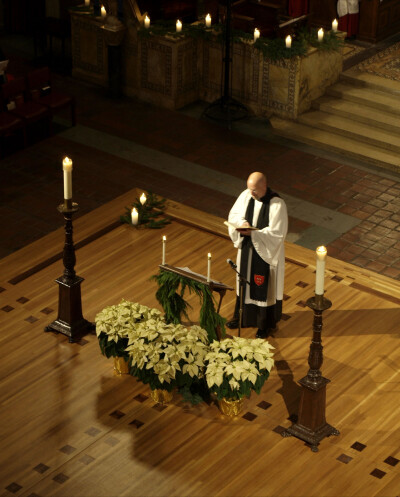Episcopalians are the ultimate and extreme “legacy church.” No matter how committed the local rector is to change, no matter how deft she or he is in managing it, there is a huge and nearly immovable weight of tradition. Some of it is so good that it might--rightly reinterpreted and freshened--be the way forward to real growth in size and health. But it takes a lot of energy. We almost inevitably tilt backward for every step and a half we take forward.I would very much agree. The very thing that is the most distinctive about the Episcopal Church--our stability--is also what makes it difficult for us to change. I've likened the Episcopal Church to a battleship or an aircraft carrier: incredibly difficult to sink, but also very difficult to turn! Unfortunately, the navy stopped making battleships years ago and the only thing that keeps aircraft carriers from going the same way is that they carry nimble and highly mobile aircraft. To continue the metaphor, evangelical mega-churches are aircraft carriers, Episcopal congregations are battleships. Both exist in an era when fast patrol boats seem much more suited to the way things need to be.
I have no real interest in leading The Church of What's Happening Now--a place that uncritically reacts to the current fashion and "felt needs" of the surrounding culture. Just troll around the Internet and you'll find a whole range of programs that are guaranteed to grow churches. In contrast to fashion, tradition is an excellent anchor in the midst of a cultural storm, holding us fast to the things that are important. However, tradition in and of itself is not enough. Tully goes on to say:
Bishop Budde of Washington is absolutely right about concentrating on the meat and potatoes of local congregational life: worship, music, compelling preaching, education, pastoral care. Taking stands on issues at the national level (where few people pay attention to us any longer) might be satisfying, but we’ve just about spent ourselves doing that.That's what we're in the process of re-creating at St. Edward's: a place with vibrant worship, quality music, compelling preaching, a variety of educational offerings, and many ways of caring for others and being cared for as well. That kind of tradition is worth building on! The difficulty lies when we concentrate so much on leaving a legacy for "future generations" that we end up building and sustaining museums of ancient faith rather than concentrating on building a legacy alongside those right outside our doors that may not worship in the same way we are used to doing, but have a deep (perhaps even unnoticed) love of ritual, a more progressive theology, and a need for community. Building is challenging, but do-able!
